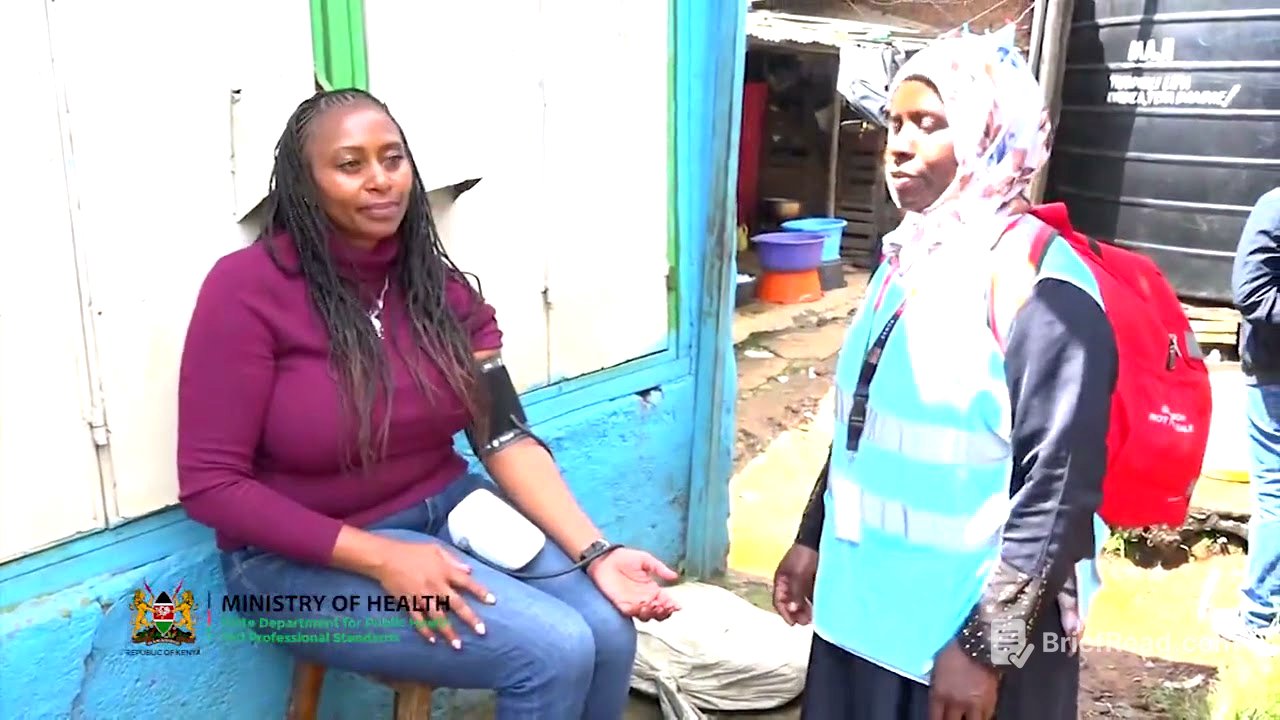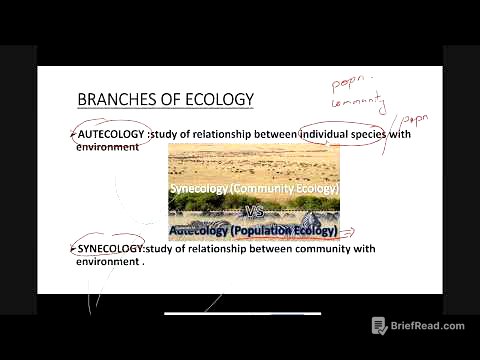TLDR;
The video highlights the critical role of community health promoters (CHPs) in Kenya's health sector, focusing on their responsibilities, achievements, and the challenges they face. CHPs connect communities with health services, provide essential health information, conduct disease surveillance, and offer first aid. They serve 100 households each, using an electronic system to record and report health data. Despite successes in screening and referrals, CHPs face challenges like vast coverage areas and unstable network connectivity. The speaker calls for support from partners and agencies to improve their resources and logistical capabilities.
- Community health promoters (CHPs) are essential for delivering health services at the grassroots level in Kenya.
- CHPs connect communities with health services, provide health education, and conduct disease surveillance.
- Electronic community health information system is used for routine services and data collection.
- Challenges include vast geographical areas, logistical issues, and unstable network connectivity.
Introduction to Community Health Promoters [0:00]
The deployment of community health promoters is aimed at delivering essential health information and services directly to communities, ensuring a sustainable and equitable future by prioritizing the health and well-being of women, children, and adolescents. Community health promoters are crucial to Kenya's health sector because they provide health services to households and individuals within their communities. Each promoter serves 100 households, fulfilling various roles and responsibilities at the community level.
Roles and Responsibilities of CHPs [0:55]
Community health promoters connect communities with health services, acting as trusted members trained to provide essential care and link people to formal health facilities, especially in rural areas with limited access. Their responsibilities include sensitizing the community on healthy lifestyles and quality health services, conducting disease surveillance by reporting early signs of health emergencies, and monitoring the health status of household members. They maintain records, provide health advice in understandable language, including sanitation and hygiene techniques like household water treatment using their kits, and offer first aid, making referrals to link facilities when necessary.
Universal Health Coverage and Primary Health Care Networks [3:07]
The rollout of universal health coverage includes primary health care networks, which group facilities geographically to aid CHPs in their referral system from households to the nearest facility. CHPs support their assigned households with quality family-based care and submit regular reports to the county director of health on the health of each member and the barriers to healthcare. They collect information on health status, report drug side effects, and utilize the electronic community health information system for routine services.
Achievements Through the Electronic System [4:35]
Through the electronic community health information system, community health promoters have registered 8,572,000 households, achieving 69% of the country's target of 12,500 households. Of these, 7,327,000 have been revisited for routine health services. 19 million people have been screened for hypertension, with 729,833 referred for further assessment. Additionally, 344,697 pregnant women were identified, and 134,000 were referred for antenatal services. 7,142,000 children under 5 have been assessed for common ailments like malnutrition, diarrhea, malaria, and pneumonia.
Impact on Policy and Challenges Faced [6:14]
The data collected through the electronic system aids the ministry in policy formulation and budget allocation for communicable and non-communicable diseases. Despite these achievements, challenges remain, including the vast geographical areas CHPs must cover, requiring them to walk long distances to reach hard-to-reach areas. The government is seeking resources to assist CHPs with logistical support. Unstable network connectivity in some areas also needs improvement to ensure seamless communication.
Call to Action and Conclusion [7:36]
A call is made to agencies, development partners, financial institutions, and individuals to support community health promoters in reducing the burden of diseases in Kenya. The speaker, Mary Modoni, Principal Secretary for Public Health, expresses gratitude and emphasizes the importance of collaborative efforts.









